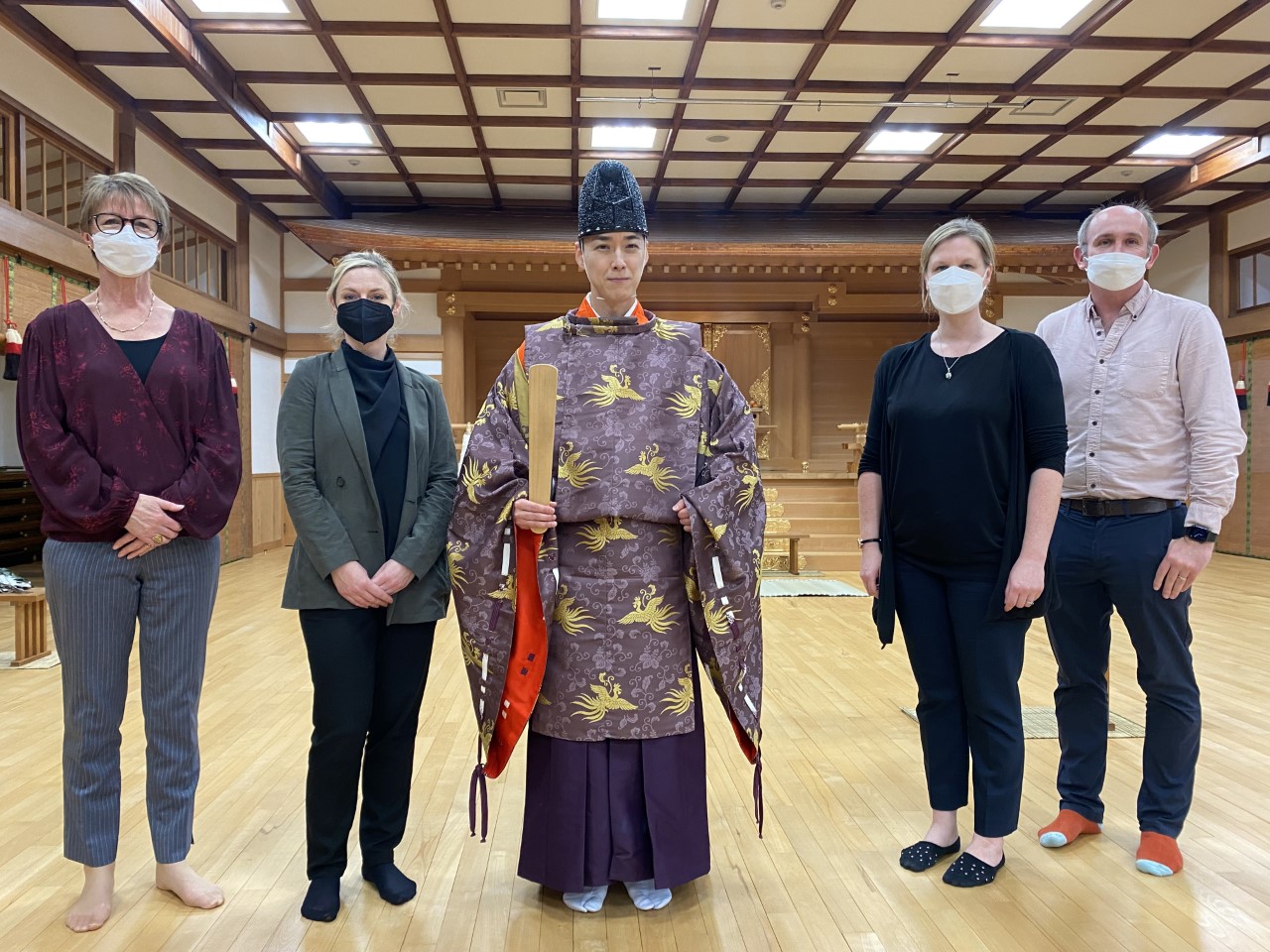In 2019 a team of researchers from the University of Kent and Kogakkan University were awarded UKRI AHRC-ESRC funding to conduct research about ‘Performance, memory and cultural heritage in the UK and Japan’.
Japan and the UK have exceptionally strong and internationally-recognised traditions of sacred and secular premodern performance. Such performance practices both reflected and responded to contemporary cultural norms and values and helped to shape those for present and future generations. In the twenty-first century, certain of these premodern performance traditions, from the stage plays of Shakespeare and Marlowe to the classical musical drama of Noh and dance drama of Kabuki, continue to exert significant influence in both cultures. Yet more wide-ranging practices of performance, from street pageantry and festive events to religious play cycles, rituals and ceremony, were also deeply embedded within both premodern cultures and have a strong residual presence today. This project investigates the role these performing arts traditions played in developing a sense of distinct cultural identity in both countries, and how these practices and modes of performance were transmitted (as text, material culture and skills-based practices) into the present day. Drawing upon the rich religious and secular site-specific performance traditions at a UNESCO World Heritage Site in Canterbury and at Japan’s most sacred Shinto shrine in Ise, the team of researchers use performance-as-research workshops at site-specific locations, as well as other forms of experiential learning and discovery, to investigate how performance has impacted upon local and national communities.
The project’s comparative focus on UK and Japanese performance cultures and its practice-as-research, site-specific methodology broke new ground. Those involved conceived of ‘performance’ broadly, giving due consideration not only to theatrical performances such as plays but also to other forms of cultural performativity and ritualized performance in both a premodern and modern context. They conducted research around four key themes: (1) transmission, (2) faith, (3) space, and (4) gender. These themes were selected based on affinities between pre-modern Japanese and UK performance practices and traditions:
See ‘Documentary’ and the two ‘Activities’ pages for further information.
